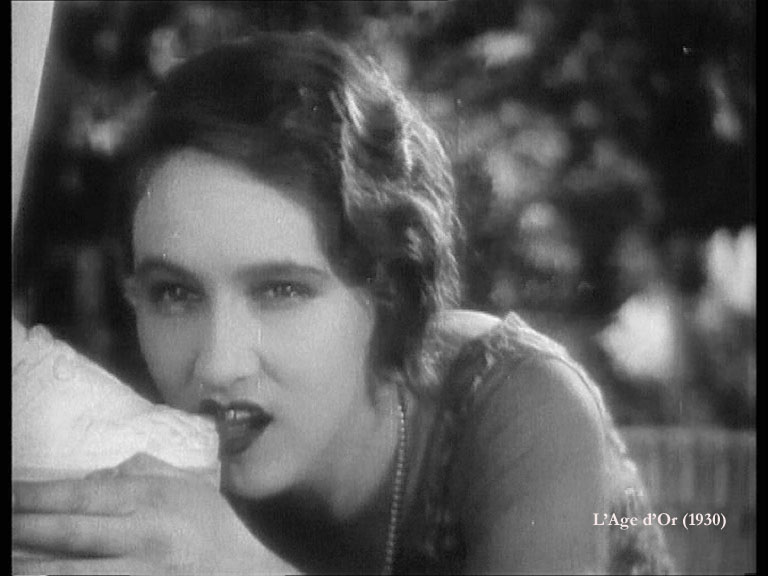The third of the group of really old European classics that I had never seen but have been conscious of going back thirty years, to the time when I used to flip through the pages of a 1970s Edition of the Oxford History of World Cinema that I had, which singled each of these out, among others, as especially great and worthy efforts in what was at that time the pretty short history of the art, the silent era being, at the time of the book's publication, less than fifty years gone. As with many of the histories and surveys that influenced me as a young person, I am sure it is due to my memories of this book that my ideas about movies have a sharp divide around 1970, with everything that came afterwards, too late to be included, and perhaps more importantly, judged by the standards of the book, not able to be regarded by me in the same aura.
L'Age d'Or, Luis Bunuel's second major work, after the short but legendary Andalusian Dog he made with Salvador Dali in 1929, was firmly included in the pantheon of films that promised, or seemed to promise, that the mere act of seeing them would be transformative enough to make one more like a character in one of these movies and less like the kind of person book authors and critics appeared to hold in contempt. There may even have been some truth in this in the days before home video, when any public showing of these films would required some physical concentration of sophisticated people to make the showing worth anyone's time. But now that one can see anything without the necessity of being in contact with or even seeing other people, the social benefits, especially as applied to the intellect in some kind of real time way, are less tangibly realized.
Bunuel was a cinematic genius, but I need to watch all of his movies multiple times before I begin to pick up on what is either supposed to or might be brilliant in them. Hopefully someday I will get more than 4-5 hours of sleep a night and will not be too exhausted at the end of every day to concentrate and think a little about complicated images, ideas, suggestions, and so on, but I am increasingly doubtful about this. While I have come around to find instances of real joy in Bunuel, I do have the feeling that for someone of my age, experience as an arts-consumer, and, though it has faded badly, formerly pretty high cognitive ability, getting to these points is requiring a lot more repetitive effort than it should be.
So I will have to revisit this some time in the future.
Subscribe to:
Post Comments (Atom)




No comments:
Post a Comment